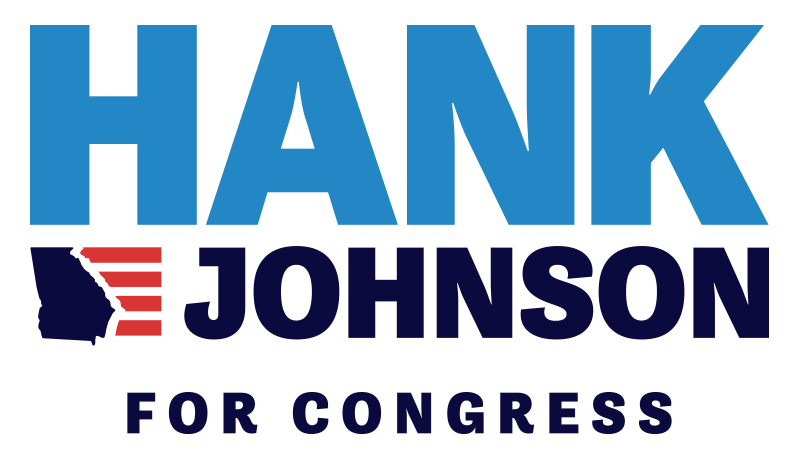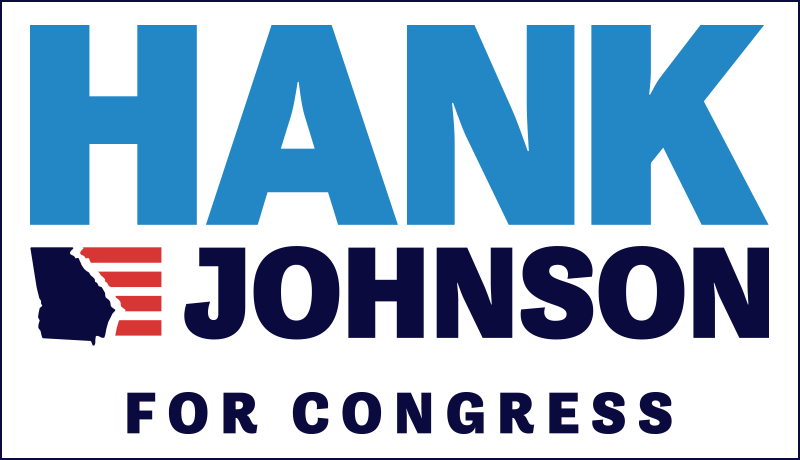WASHINGTON, D.C. – Rep. Hank Johnson (GA-04) applauded passage of historic Families and Workers-First legislation, which will now go to the President’s desk for his signature.
The Congressman was in the Chamber and voted in support of the bill, the Coronavirus Aid, Relief & Economic Security (CARES) Act.
“I am proud to support this historic piece of legislation, which will bring urgently needed relief to families and small businesses all across this country, including Georgia,” said Rep. Johnson. “During this time of stress and uncertainty, every American needs to know that their government is there to support them without hesitation. This latest piece of legislation is an important step in our ongoing effort to act decisively on behalf of the American people and ensure workers and families have the resources they need today and throughout this unprecedented crisis.”
“America is facing a grave health emergency with a serious impact on our economy, but the most important thing we can do now is put people over profits,” Rep. Johnson added. “The coronavirus bill that Senate Republicans put forward last weekend was a non-starter and put corporations first, not America’s workers. Thanks to the hard work of Congressional Democrats, the Republican corporations-focused proposal bill has been turned into a bipartisan workers-first bill. I am pleased that Democrats have achieved the bold, pro-worker action that is desperately needed to protect the health and well-being of every American.”
Here are just a few of the numerous initiatives in this historic piece of legislation that will benefit the residents of Georgia.
- A $150 Billion State and Local Coronavirus Relief Fund: Creates a $150 billion State and Local Coronavirus Relief Fund to provide states and localities additional resources to cope with the coronavirus pandemic. It is estimated that Georgia will receive approximately $4 billion in desperately needed funds to benefit our state’s residents.
- $260 Billion in Dramatically Expanded Unemployment Benefits: Includes numerous provisions to improve unemployment benefits including providing an additional $600 per week for the next four months, providing an additional 13 weeks of federally funded benefits, and expanding eligibility to include workers in the gig economy and self-employed workers.
- Immediate Direct Cash Payments to Lower and Middle-Income Americans: Provides for immediate, direct cash payments to lower-and middle-income Americans of $1,200 for each adult and $500 for each child, beginning to phase out at an annual income of $75,000 for an individual and $150,000 for a household. These payments will provide individuals with the cash they need right now to survive with much of the economy currently shut down.
- More Than $375 Billion in Small Business Relief: Provides more than $375 billion in small business relief, including $349 billion for forgivable loans to small businesses to pay their employees and keep them on the payroll; $17 billion for debt relief for current and new SBA borrowers; and $10 billion in immediate disaster grants.
- Approximately $200 Billion for Our Hospitals, Health Care Workers, and Health Research: Provides an investment of about $200 billion in our hospitals, health systems, and health research, including expanding funding for the personal protective equipment desperately needed by our health care workers, including ventilators, n95 masks, gowns, gloves, etc.
- More Than $100 Billion in Additional Emergency Appropriations, Including the Following:
- Transit Agencies: Provides $25 billion to transit agencies, which have all seen a drastic drop in revenues as social distancing has been implemented. This funding is to be used to protect the jobs of the employees of the transit agencies, funding their paychecks during this public health emergency Georgia will receive more than $518 million under this program.
- HUD Emergency Solution Grants: Provides $2 billion for HUD Emergency Solution Grants to states that will be distributed by formula. These grants are designed to address the impact of the coronavirus among individuals and families who are homeless or at risk of homelessness, and to support additional homeless assistance, prevention, and eviction prevention assistance. Of this $2 billion, our state will receive more than $50 million. In addition, the bill provides an additional $2 billion for these grants that will be allocated by HUD to the most hard-pressed areas.
- Child Care and Development Block Grant: Supports childcare and early education by providing $3.5 billion for the Child Care and Development Block Grant. Our state will receive $143 million under this emergency appropriation.
- Low-Income Home Energy Assistance Program (LIHEAP): Provides $900 million to help low-income families pay their heating and cooling bills. Our state will receive $42 million for this purpose during this public health emergency.
- Byrne-Justice Assistance Grant Program: Provides $850 million for this program, giving additional support to state and local law enforcement agencies, thereby allowing them, for example, to obtain the personal protective equipment and other medical items they may need during this public health emergency. Our state will receive $25 million under this appropriation.
- CDC Coronavirus State, Local and Tribal Grants Minimum Awards: Provides about $750 million in CDC State, Local and Tribal Grants Minimum Awards to help agencies cope with the public health emergency. The minimum award for our state is $16 million. In addition, states can apply for additional funds above their minimum award, based on their needs.
- Election Assistance: Provides $400 million for Election Assistance Grants for states to help prepare for the 2020 elections. Coronavirus is already resulting in the postponement of some primaries and this funding can help states make voting safer for individuals. Funding can be used, for example, to increase the ability to vote by mail, expand early voting, and expand online registration. Our state will receive $10 million for these purposes.
“The American people need and deserve a coordinated, fully-funded, whole-of-government response to keep them and their loved ones safe from the coronavirus epidemic,” continued Rep. Johnson. “On behalf of the hard-working families of Georgia and all Americans, I will continue to join House Democrats to work relentlessly and in a bipartisan way to put families and workers first and protect Americans’ health, safety and economic security.”
###





